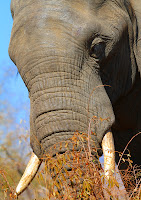The hunter and his prey
The hunter and his prey
The hunter and his prey
-
Hannah
-
Hannah
Africa, the setting for Burning Embers, is of course a country famous for hunting. Natives have hunted to survive since the earliest days of the continent’s inhabitation, and the vast array of large, dangerous wildlife there created a real pull for white hunters, keen to demonstrate their prowess by gunning down a ferocious lion or felling a great elephant on safari.
Hunting was still a feature, albeit less prominent than yesteryear, of Mombasa in the 1960s, but the societal change worldwide in this period was seeing more and more people call for an end to a cruel and exploitative pastime. In the book, Coral’s ex-fiancé, Dale, is very much of the old school – an upper-class white man who enjoys the thrill of the hunt and cares nothing for the plight of the prey. Rafe, meanwhile, is an expert hunter, but he is also an intelligent man, in pace with the modern world but also with Kenya. His is not a romanticised view, but he is not without humanity and compassion either. He has respect for the creatures of the land he calls home, and is angered by Dale’s callous and ignorant approach and his delight in the prizes on offer – a rhino’s horn, a crocodile skin.
Take elephants, for example, which Dale gleefully recalls hunting on an expedition. It is a sad fact that elephant hunting was legal in Kenya until 1973, and as a result the numbers of these beautiful creatures fell dramatically (it is estimated that between 1970 and 1977, Kenya lost more than half of its elephants). And shockingly, the spectre of hunting looms over this country to this very day. Ivory continues to be traded on the black market, and The Economist recently reported on the possibility of the Kenyan government relaxing regulations to permit more hunting.
Coral – a young woman of the 1960s: liberated, spirited, determined, intelligent – is understandably repulsed by the world of hunting. I wonder what she would have made of the state of affairs today, fifty years on. I suspect she’d have been one of the first lined up to protest against proposals that would, in the eyes of many animal activists, see a return to ‘white man’s Africa’.
